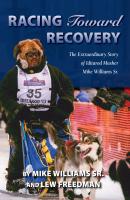Racing Toward Recovery. Lew Freedman
Чтение книги онлайн.

Читать онлайн книгу Racing Toward Recovery - Lew Freedman страница 12
Название: Racing Toward Recovery
Автор: Lew Freedman
Издательство: Ingram
Жанр: Биографии и Мемуары
isbn: 9781941821671
isbn:
When I took the mental health position it expanded my work with kids in the middle school. After a while Marianne Stillner asked me if I would be interested in using the karate instruction as a self-esteem and confidence builder for the kids that were brain damaged, had developmental disabilities, or didn’t have any role models. We took some of those kids, equipped them with karate uniforms, and I spent two hours of my work day teaching them karate. I also worked as a counselor working through the schools in building self-esteem within these kids. These were kids who weren’t doing well in the classroom and they had low selfesteem because of that or other reasons. After a year of doing that we found that these kids had improved their confidence and their grades. Everything improved for these kids.
This started in 1975 or 1976 and at the same time we had about thirty dogs in the kennel. My brothers were taking care of them, mainly Walter. But back then we always had around thirty dogs in our family for transportation and racing. It was pretty tough for me to spend too much time with the dogs because of all the things I was doing in Bethel during that period. But I took turns with getting fish for the dog food, feeding the dogs, and handling their sleds and equipment. I would go to Akiak on the weekends and mush the dogs. I kept my hand in with the dogs.
At about this time there was an explosion in suicide amongst young people in Alakanuk, which is a little bit more than 150 miles from Bethel. There seemed to be suicides happening every week. This was exactly the type of thing we were trying to prevent from happening in Bethel through our program. The Yukon-Kuskokwim Health Corporation was working with more than fifty tribes. We were trying to provide counseling services for the villages and it seemed as if Alakanuk was an important place to go.
It really did seem as if a teenager was killing himself, or herself, every week in Alakanuk. We wanted to help the community with its grieving. We wanted to find a way to be of assistance during this disaster. We wanted to examine the reasons why the kids were killing themselves. What the heck was going on? The suicides prompted us to consistently travel to that village. I went there and met with community leaders, individuals who were affected, and families. We were trying to salve the wounds. We really wanted to stop this epidemic of suicides and address the issue of “How do we prevent more wounds?” We went there trying to look for underlying causes.
It seemed pretty clear to us that some of the underlying causes of this despair involved the loss of their language and the loss of the culture. And alcohol was playing a major part. Some kids were being abused. There was dysfunction in families as the result of dependency on alcohol. People were drinking because they weren’t adjusting to quick life changes from the days of the healthy Alaska Native. There was that pressure to assimilate. There were all of those new government rules. There was rapid change stemming from the Alaska Native Claims Settlement Act. Some people got rich. Some people were still on the outside. Families that for generations had been solidly relying on subsistence hunting and fishing were going on welfare, public assistance.
All of these things add up to loss of identity and lack of identity—loss and lack. Those were the underlying issues and they still are outstanding issues in villages in rural Alaska. We still have to figure out what to do about those underlying causes. All of those things, language, land, religion, education, alcohol dependency, education, contribute to the loss of identity. It is not difficult to feel overwhelmed.
Конец ознакомительного фрагмента.
Текст предоставлен ООО «ЛитРес».
Прочитайте эту книгу целиком, купив полную легальную версию на ЛитРес.
Безопасно оплатить книгу можно банковской картой Visa, MasterCard, Maestro, со счета мобильного телефона, с платежного терминала, в салоне МТС или Связной, через PayPal, WebMoney, Яндекс.Деньги, QIWI Кошелек, бонусными картами или другим удобным Вам способом.